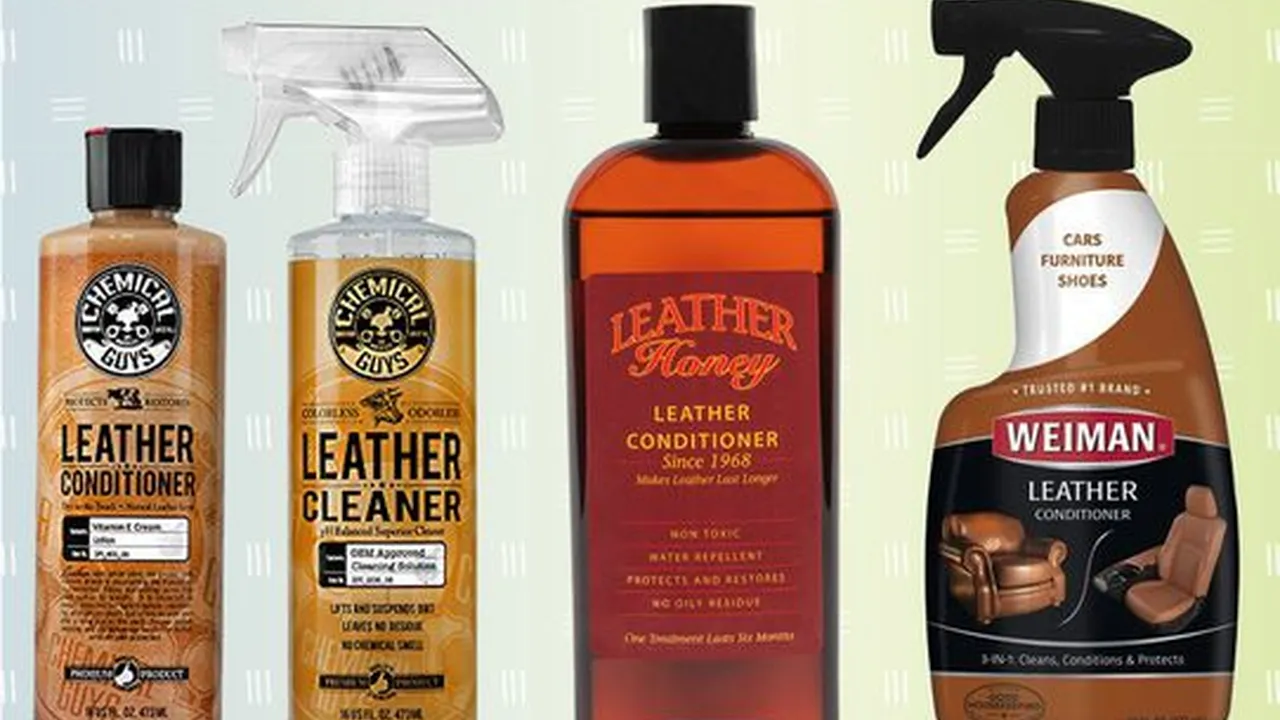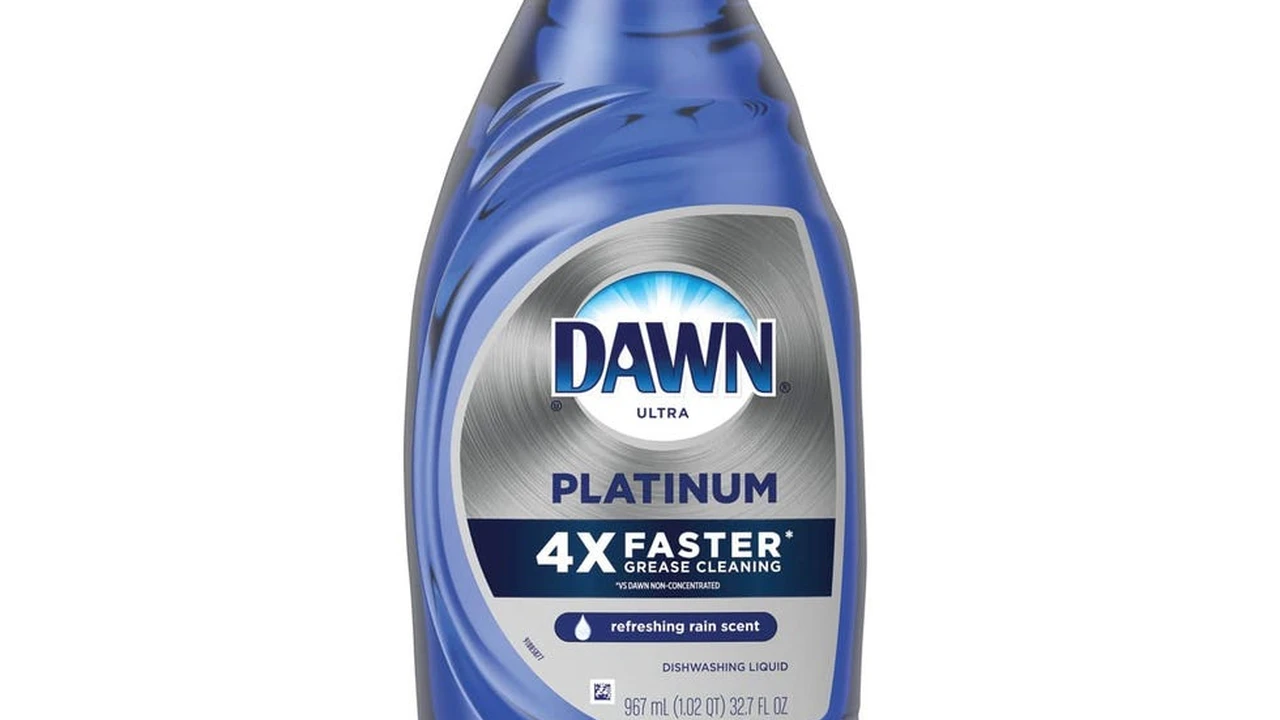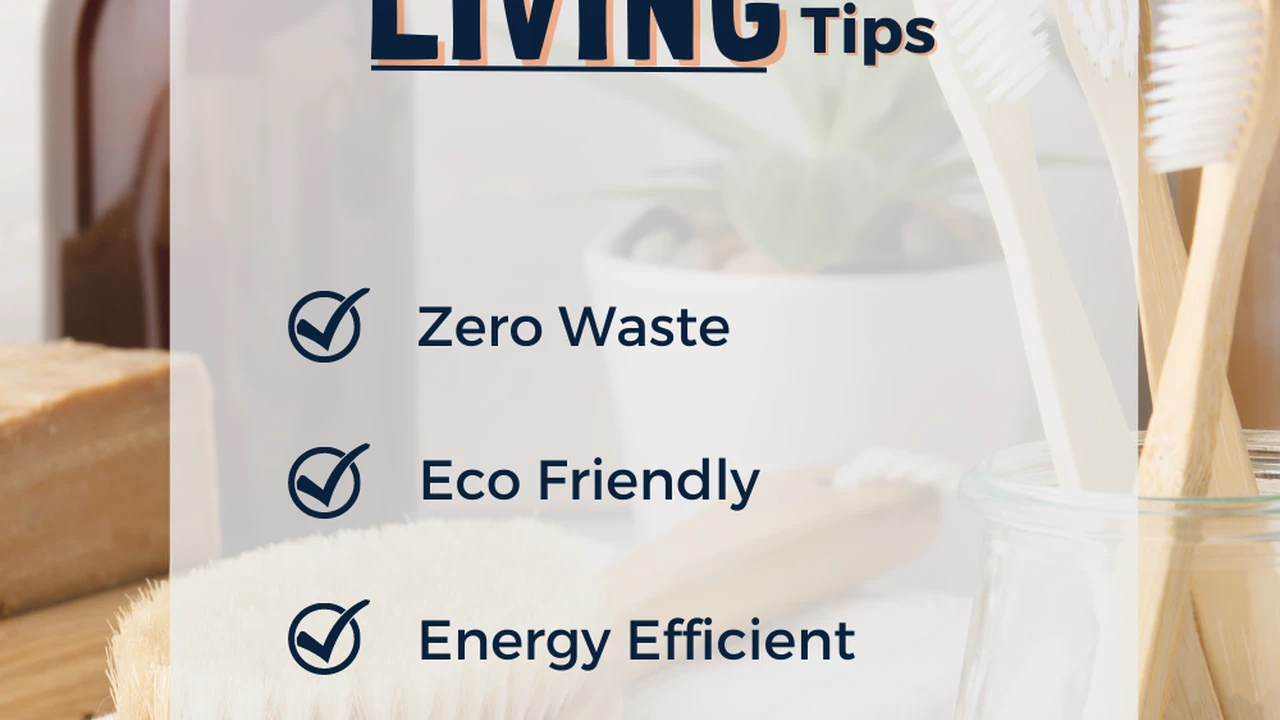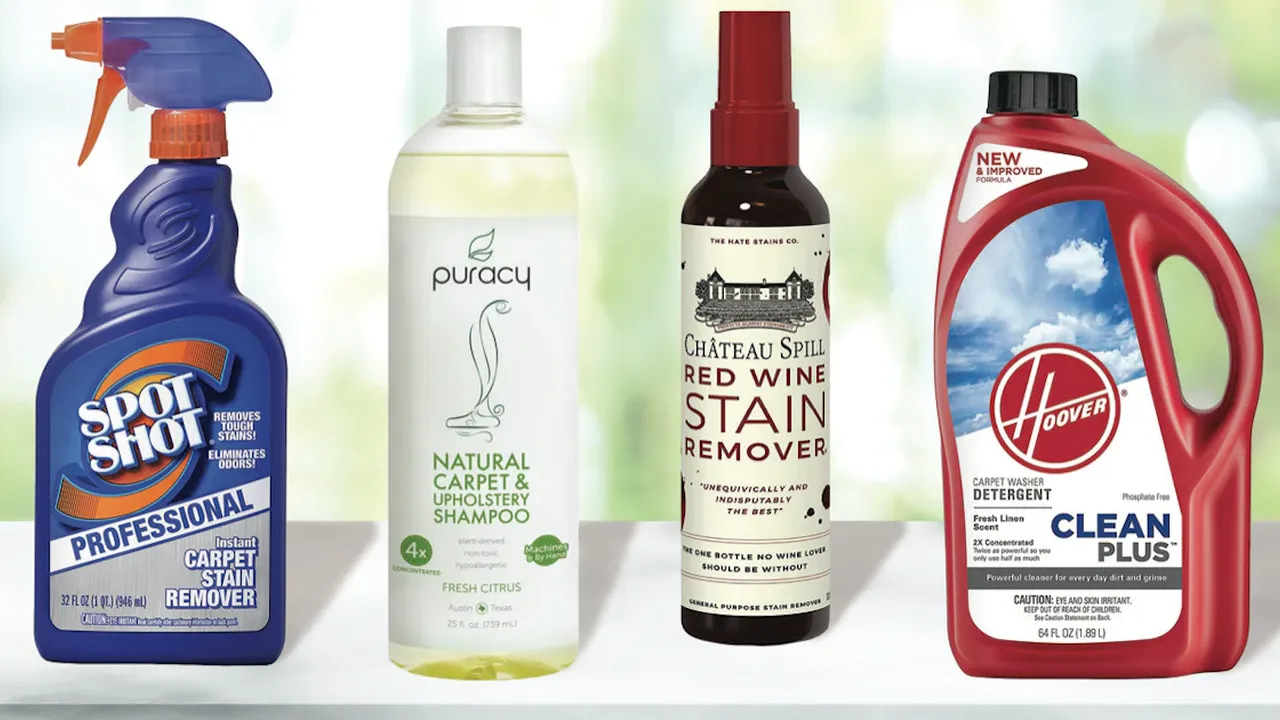Best Leather Cleaners: Protect and Preserve Your Leather

Understanding Leather Types and Their Cleaning Needs
Leather isn't just leather, folks! There's full-grain, top-grain, bonded, and even faux leather. Knowing what you're dealing with is key to choosing the right cleaner. Full-grain, the highest quality, is durable but needs gentle care. Top-grain is sanded and finished, making it more resistant to stains but still requiring protection. Bonded leather is scraps glued together, so it's less durable and can be sensitive to harsh chemicals. Faux leather, often vinyl or PU, is the most forgiving but can still crack or fade if not cared for properly.
Think of it like this: you wouldn't use the same shampoo on dry, damaged hair as you would on oily hair, right? Same deal with leather! Identify your leather type before you even think about grabbing a cleaner.
Identifying Common Leather Problems and How to Address Them
Leather isn't invincible. It can suffer from dryness, cracking, fading, stains, and general wear and tear. Each problem requires a slightly different approach. Dry leather needs hydration, cracking leather needs patching (sometimes best left to the pros), fading leather needs protection from UV rays, and stains… well, stains are the bane of every leather owner's existence! We'll tackle those in detail later.
Prevention is always better than cure. Regular cleaning and conditioning can prevent a lot of these problems from happening in the first place.
Top Leather Cleaner Ingredients and What They Do
Leather cleaners come in all shapes and sizes, and their ingredients vary wildly. Some common ingredients you'll find include:
- Surfactants: These help lift dirt and grime from the leather surface.
- Conditioners: These hydrate the leather and keep it supple, preventing cracking. Look for ingredients like lanolin, neatsfoot oil, or beeswax.
- pH balancers: Leather is slightly acidic, so a cleaner with a balanced pH won't damage it.
- Solvents: These can help dissolve stubborn stains, but use them sparingly as they can dry out the leather.
Avoid cleaners with harsh chemicals like bleach or ammonia, as they can strip the leather of its natural oils and cause damage.
Recommended Leather Cleaners for Different Applications and Budgets
Okay, let's get to the good stuff! Here are a few of my favorite leather cleaners, broken down by application and budget:
H2 Best Overall Leather Cleaner and Conditioner: Leather Honey Leather Conditioner
Description: Leather Honey is a classic for a reason. It's a thick, honey-like conditioner that deeply penetrates leather, leaving it soft and supple. It's great for furniture, car interiors, and even leather clothing.
Pros: Long-lasting, effective on a variety of leather types, leaves a protective coating.
Cons: Can be a bit greasy if over-applied, requires some elbow grease to buff in.
Usage Scenarios: Ideal for reviving old, dry leather furniture or protecting new leather items.
Price: Around $20-30 per bottle.
H2 Best Leather Cleaner for Car Interiors: Chemical Guys Leather Cleaner and Conditioner Complete Leather Care Kit
Description: This kit from Chemical Guys includes both a cleaner and a conditioner, specifically formulated for car interiors. It's gentle yet effective at removing dirt, grime, and even light stains.
Pros: Pleasant scent, easy to use, leaves a matte finish.
Cons: May not be strong enough for heavy stains.
Usage Scenarios: Perfect for maintaining the leather seats in your car and keeping them looking new.
Price: Around $25-35 per kit.
H2 Best Leather Cleaner for Shoes and Boots: Bickmore Bick 1 Leather Cleaner
Description: Bickmore Bick 1 is a gentle cleaner that's safe for use on delicate leather shoes and boots. It removes dirt and grime without stripping the leather of its natural oils.
Pros: Safe for use on exotic leathers, leaves no residue, affordable.
Cons: May not be effective on heavy stains.
Usage Scenarios: Ideal for cleaning and maintaining your favorite leather shoes and boots.
Price: Around $10-15 per bottle.
H2 Best Budget Leather Cleaner: Weiman Leather Cleaner and Conditioner
Description: Weiman Leather Cleaner and Conditioner is a great option if you're on a budget. It's a two-in-one product that cleans and conditions leather in one easy step.
Pros: Affordable, convenient, easy to find.
Cons: May not be as effective as more specialized cleaners, can leave a slightly shiny finish.
Usage Scenarios: Good for general cleaning and conditioning of leather furniture and accessories.
Price: Around $5-10 per bottle.
H2 Best Leather Cleaner for Light Colored Leather: Furniture Clinic Leather Ultra Clean
Description: Light colored leather is notoriously difficult to keep clean. This cleaner is specially formulated to lift stains and dirt without damaging the delicate finish.
Pros: Excellent for removing stubborn stains on light leather, safe and gentle formula.
Cons: More expensive than other options, requires careful application.
Usage Scenarios: Ideal for white, cream, or other light-colored leather furniture and accessories.
Price: Around $30-40 per bottle.
H2 Best Leather Cleaner for Deep Stains: Chamberlain's Leather Milk Leather Care Liniment No. 1
Description: For those tough, set-in stains, Chamberlain's Leather Milk offers a powerful cleaning solution. Be sure to spot test first!
Pros: Highly effective on tough stains, contains natural oils for conditioning.
Cons: Can darken some leathers, requires a separate conditioner.
Usage Scenarios: Use on furniture or items with deep-seated stains. Spot test in an inconspicuous area first.
Price: Around $25-35 per bottle.
H2 Best Leather Cleaner for Faux Leather: Meguiar's Gold Class Leather & Vinyl Cleaner
Description: While not technically leather, faux leather still needs cleaning! This cleaner is safe and effective for vinyl and PU surfaces.
Pros: Safe for faux leather, affordable, widely available.
Cons: Not suitable for genuine leather.
Usage Scenarios: Cleaning faux leather car seats, furniture, or accessories.
Price: Around $10-15 per bottle.
H2 Best All-Natural Leather Cleaner: Murphy Oil Soap
Description: While not specifically designed for leather, Murphy Oil Soap, diluted properly, can be a gentle and effective cleaner. Use with caution and always test in an inconspicuous area first.
Pros: All-natural ingredients, gentle cleaning action, very affordable.
Cons: Requires careful dilution, not suitable for all leather types, may not remove heavy stains.
Usage Scenarios: Light cleaning of leather furniture, always test first.
Price: Around $5-10 per bottle.
Step-by-Step Guide to Cleaning Leather Like a Pro
Now that you've chosen your cleaner, let's get down to business! Here's a step-by-step guide to cleaning leather like a pro:
- Dust and vacuum: Remove any loose dirt and debris from the leather surface. Use a soft brush attachment on your vacuum cleaner.
- Spot test: Always test your cleaner in an inconspicuous area first to make sure it doesn't damage or discolor the leather.
- Apply the cleaner: Apply a small amount of cleaner to a clean, soft cloth.
- Gently wipe: Gently wipe the leather surface in a circular motion. Avoid rubbing too hard, as this can damage the leather.
- Wipe away excess cleaner: Use a clean, dry cloth to wipe away any excess cleaner.
- Condition: Apply a leather conditioner to hydrate the leather and protect it from cracking.
- Buff: Buff the leather with a clean, dry cloth to remove any excess conditioner and leave a shine.
Comparing Different Leather Cleaners: Which One is Right for You?
With so many leather cleaners on the market, it can be tough to choose the right one. Here's a quick comparison of the cleaners we discussed earlier:
| Cleaner | Pros | Cons | Best For |
|---|---|---|---|
| Leather Honey | Long-lasting, effective, protective coating | Can be greasy, requires elbow grease | Overall leather care |
| Chemical Guys Leather Kit | Pleasant scent, easy to use, matte finish | May not be strong enough for heavy stains | Car interiors |
| Bickmore Bick 1 | Safe for exotic leathers, no residue, affordable | May not be effective on heavy stains | Shoes and boots |
| Weiman Leather Cleaner | Affordable, convenient, easy to find | May not be as effective as specialized cleaners, shiny finish | Budget-friendly general cleaning |
| Furniture Clinic Leather Ultra Clean | Excellent for stains on light leather, safe | Expensive, requires careful application | Light colored leather |
| Chamberlain's Leather Milk | Effective on tough stains, natural oils | Can darken some leathers, requires separate conditioner | Deep stains |
| Meguiar's Gold Class (Vinyl) | Safe for faux leather, affordable, widely available | Not for genuine leather | Faux leather |
| Murphy Oil Soap | All-natural, gentle, very affordable | Requires dilution, not for all leather, may not remove heavy stains | Gentle cleaning |
Maintaining Your Leather: Tips and Tricks for Long-Lasting Beauty
Cleaning is just one part of leather care. Here are a few additional tips and tricks to keep your leather looking its best:
- Condition regularly: Condition your leather every few months, or more often if it's exposed to harsh conditions.
- Protect from sunlight: Avoid placing leather furniture in direct sunlight, as this can cause it to fade and crack.
- Avoid extreme temperatures: Leather can dry out in extreme heat or become brittle in extreme cold.
- Clean up spills immediately: The longer a spill sits on leather, the harder it will be to remove.
- Use a leather protector: A leather protector can help repel stains and protect the leather from wear and tear.
Dealing with Specific Leather Stains: A Troubleshooting Guide
Spills happen! Here's how to tackle some common leather stains:
- Water stains: Blot up excess water immediately and allow the leather to air dry.
- Oil stains: Sprinkle cornstarch or baking soda on the stain and let it sit for several hours to absorb the oil. Then, vacuum up the powder.
- Ink stains: Try rubbing alcohol on a cotton swab, but test in an inconspicuous area first.
- Food stains: Wipe up the spill immediately with a damp cloth. If the stain persists, try a mild leather cleaner.
For stubborn stains, consider consulting a professional leather cleaner.
When to Call a Professional Leather Cleaner
Sometimes, DIY cleaning just isn't enough. Here are a few situations where you should call a professional leather cleaner:
- Large or stubborn stains: If you've tried everything and the stain is still there, it's time to call in the pros.
- Delicate or antique leather: Antique or delicate leather requires special care and should be cleaned by a professional.
- Extensive damage: If your leather is cracked, torn, or severely damaged, a professional can assess the damage and recommend the best course of action.
Don't be afraid to seek professional help! It's better to spend a little money on a professional cleaner than to risk damaging your leather beyond repair.
:max_bytes(150000):strip_icc()/277019-baked-pork-chops-with-cream-of-mushroom-soup-DDMFS-beauty-4x3-BG-7505-5762b731cf30447d9cbbbbbf387beafa.jpg)






